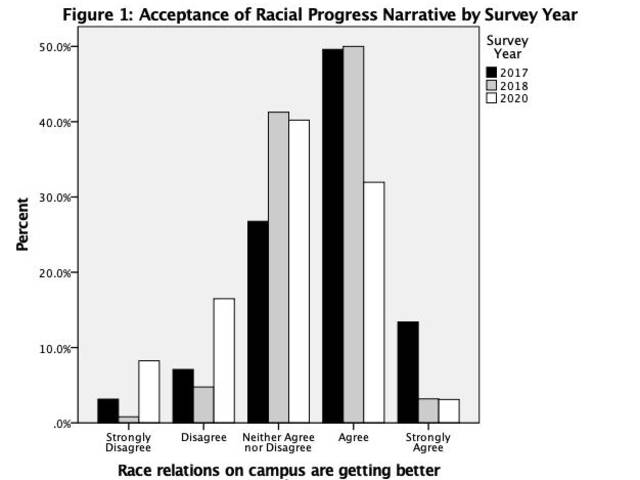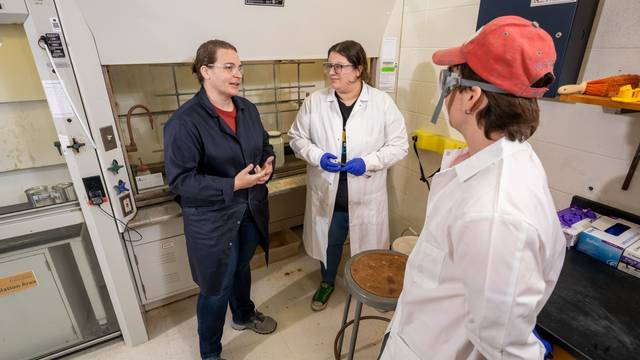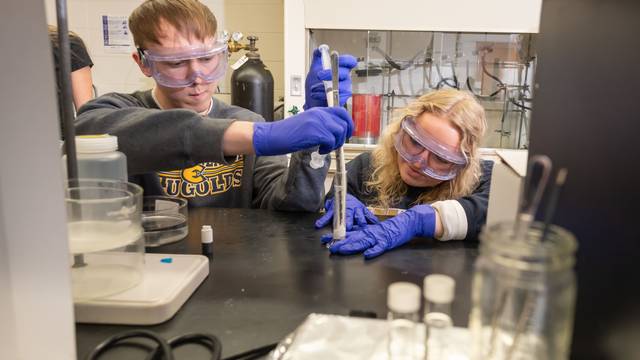During the Spring 2020 semester, in the wake of campus shutdown caused by the COVID-19 pandemic, UWEC students completed the fourth wave of the Eau Claire Longitudinal Student Survey (ECLSS). The ECLSS is an omnibus campus survey administered annually to a random sample of 500 undergraduates enrolled at the University of Wisconsin-Eau Claire. Students from the Sociological Research Methods class (SOC 332) and three faculty members designed eight questionnaire modules on topics ranging from the UWEC academic calendar to marijuana legalization. Below are some of the more notable findings.
Racism and Campus Diversity
During the Fall 2019 semester, UWEC was rocked by two high-profile racist incidents that prompted calls for institutional change from students, staff, and faculty. How did students react to these attacks?
Only a small minority of students participated in the protests (13%), talked to the media (9%), or shared information on social media about the incidents (15%); however, large majorities of students talked to their friends and family about the situation (86%), said that the protests were justified (72%), and said that their professors talked about the incidents in class (64%). The campus was divided about how well the university handled the situation: 32% said the university handled the situation “well” or “very well,” while 38% said it was handled “poorly” or “very poorly.”
Did the racist incidents cause any students to change their attitudes about racism or diversity on campus? Because the ECLSS has asked students about these issues prior to 2020, we can compare students’ answers to the survey questions this year with those from prior years.

ECLSS Race Relations 2017-2020
Data show that students in 2020 were much less likely to believe that race relations on campus were improving.
As the figure shows, one thing that changed was students’ perceptions about race relations on campus. Compared to 2018, the level of agreement with the statement that “race relations on campus are getting better over time dropped from 53% to 35%, while the corresponding level of disagreement rose from 6% to 25%. White Americans have long bought into the narrative of racial progress, and the racist incidents in 2019 appear to have disrupted that narrative, at least for a significant percentage of students.
However, there is little evidence that other attitudes about racism or diversity changed. Over the same time period, there was no change in students’ estimates of how racially diverse the campus is, how uncomfortable students feel on campus because of their race, or support for an initiative intended to increase enrollment of students of color. Thus, although the racist incidents of 2019 may have called greater attention to the reality of racial inequality on campus, there is little evidence that they prompted a larger change in attitudes about racism on this predominantly white campus.
Politics and the 2020 Election
Overall, the ECLSS shows that the UWEC student body is moderately liberal. Consistently, about 1/3 of the student body describes themselves as moderate, but twice as many students identify themselves as (very) liberal or Democratic, as opposed to (very) conservative or Republican. In 2020, for example, 46% of students identified as liberal or very liberal, compared to 20% who identified as conservative.
Students in Spring 2020 were quite dissatisfied about the state of society, no surprise given the pandemic: 72% of students were dissatisfied with the way things are going in the United States, and 61% said they disapproved of the way Donald Trump was handling his job as President. These figures are slightly higher than the nation as a whole: the comparable numbers from the Gallup poll from early April were 66% and 54%, respectively.
When asked who students would vote for in the Presidential election between Donald Trump and Joe Biden “if the election were held today,” 56% said Joe Biden, 26% said Donald Trump, and 13% were unsure. By comparison, no national poll has shown less than 36% of Americans who would for Donald Trump. This suggests that UWEC students are far less likely to say they will vote for Donald Trump than Americans as a whole.
What issues do UWEC students care about most? The top three issues that UWEC students rated as “extremely important” that the U.S. government deal with were: climate change (60%), health care (58%), and education (56%). Here’s hoping!
COVID 19 and Student Resources
Finally, one of the big stories of the Spring 2020 semester was the COVID-19 pandemic, which shut down campus in mid-March. How did students handle the transition?
A majority (73%) of survey respondents said they thought they were handling the transition to online learning “very well,” “well,” or “somewhat well”—a number that is probably inflated by the fact that students who were struggling with the transition were probably less likely to complete the survey. As evidence of this, a majority (51%) of respondents said that they or someone they knew were experiencing disruptions in access to health, mental health, and academic support services because of the pandemic.
Despite the optimistic attitudes of those who took the survey, the closure of the campus because of the pandemic had significant negative effects on a large percentage of the student body. According to the survey, the majority of students (64%) on campus take advantage of services provided by Student Health Services, Counseling Services, and the Services for Students with Disabilities Office. Therefore, it is important that UWEC invest in these services and work to ensure that future disruptions do not affect students’ ability to succeed in their education.




